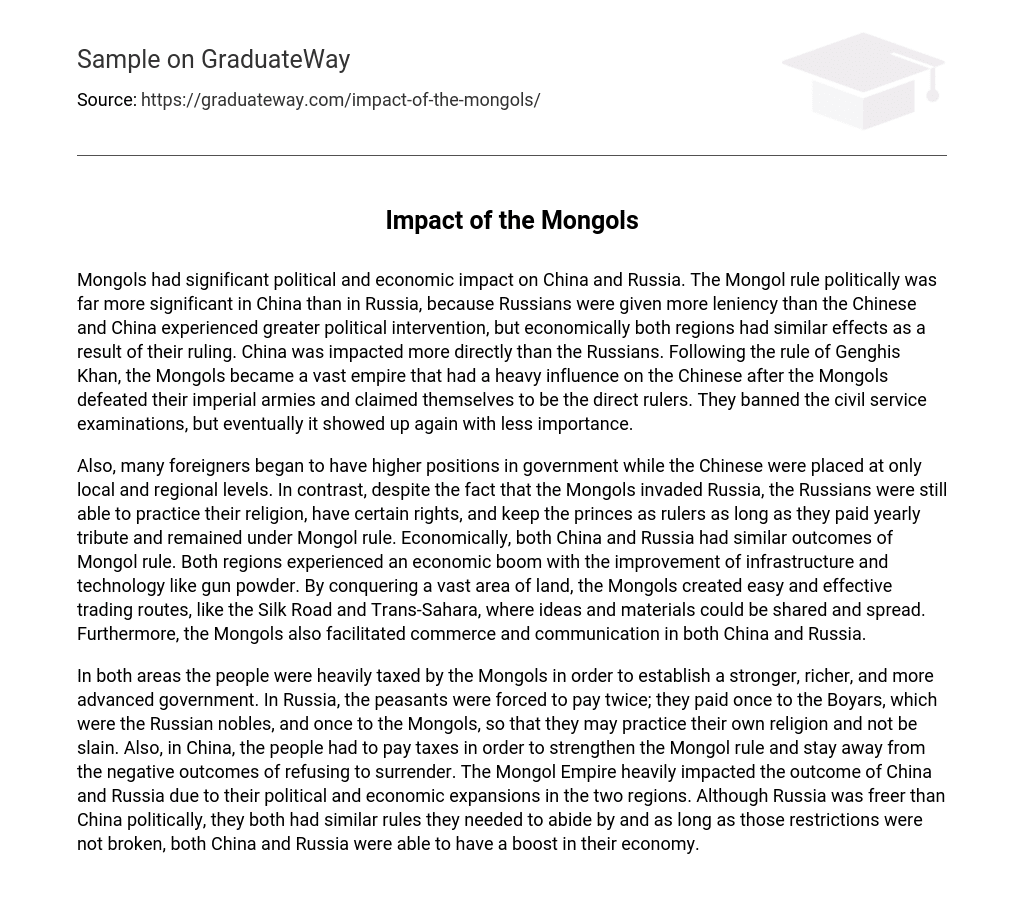Both China and Russia were significantly impacted politically and economically by the Mongols. However, the political impact was more pronounced in China compared to Russia. This is because the Chinese faced greater political intervention from the Mongols, while the Russians received more leniency. Despite this difference, both regions experienced similar economic effects during the Mongol rule.
China suffered a more direct impact compared to Russia as a result of Genghis Khan’s rule. The Mongol Empire, which emerged under Genghis Khan, exerted significant influence over China after defeating their imperial armies and declaring themselves as the ruling power. As a consequence, the Mongols abolished the civil service examinations. However, these examinations eventually resurfaced with diminished significance.
Additionally, while the Chinese were limited to local and regional roles, foreigners secured higher positions within the government. In contrast, although the Mongols invaded Russia, the Russians retained their ability to exercise their religion, possess certain rights, and maintain their rulership through payment of annual tribute and submission to Mongol authority.
The economic impact of Mongol rule was similar in China and Russia. Both countries saw improvements in their economies through advancements in infrastructure and technology, such as the adoption of gunpowder. The Mongols’ conquests across vast territories helped establish efficient trade routes like the Silk Road and Trans-Sahara, enabling the exchange and dissemination of ideas and resources. Additionally, the Mongols played a vital role in fostering commerce and communication in both China and Russia.
Both in Russia and China, the population endured significant taxation from the Mongols. This was done with the goal of establishing a more powerful, prosperous, and sophisticated government. In Russia, the peasants were compelled to pay taxes twice. Firstly, they had to pay the Russian nobles known as Boyars, and secondly, they had to pay the Mongols. This arrangement allowed them to freely practice their religion without facing death. Similarly, in China, taxes were levied to consolidate Mongol rule and avoid the repercussions of resisting surrender.
Both China and Russia were significantly impacted by the political and economic expansions of the Mongol Empire. Although Russia enjoyed more political freedom than China, both nations were subjected to similar rules. Economic growth was experienced by both countries as long as these rules were not violated.





